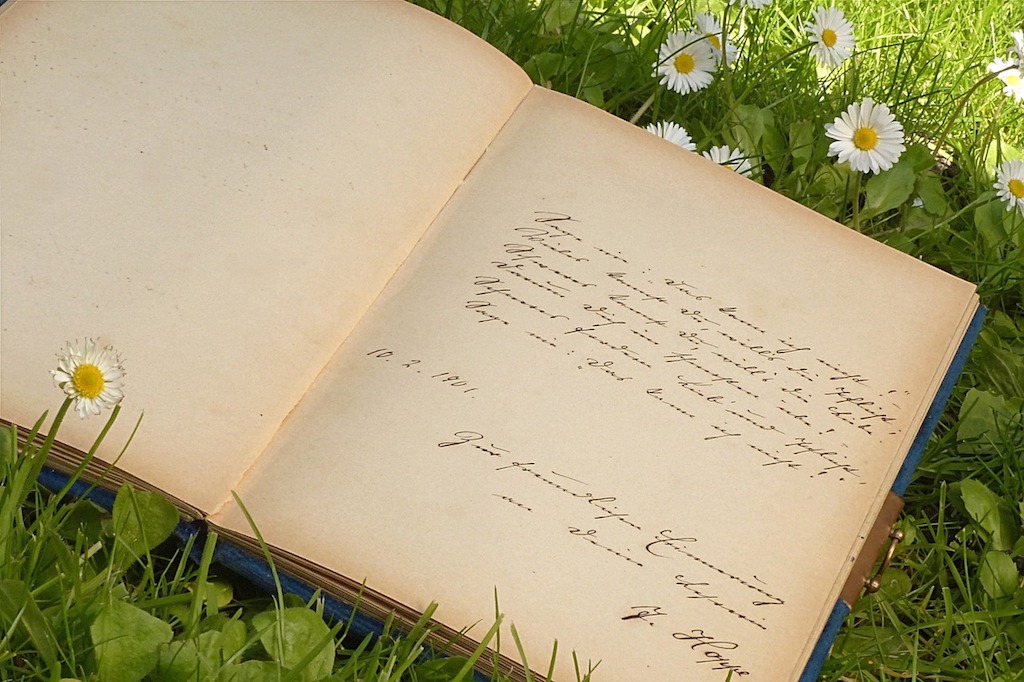Expressive writing helps restore and bring about wholeness, says Zambian-born writer Danie Botha, who now lives and works in Canada. In this post he shares 14 unexpected ways that short-form prose and poetry bring healing, and explains why he describes it from personal experience as “a new survival tool” .
Writing has helped me heal.
A sentiment shared by an endless number of writers and people from all walks of life. For some, myself included, there is a stronger conviction that writing has been instrumental in steering one away from the abyss.
I’ve been writing for several years, but it was only during the last year, while grappling with devastating personal loss and intense work-related stress, that I discovered the (somewhat unexpected) effectiveness of short-form prose and poetry.
It was as if I had discovered a new survival tool.
Writing – One Way to Survive Trauma
Every day people are exposed to loss, death, illness, divorce, trauma, and abuse. It is not uncommon anymore to be affected by public violence.
How does one survive all this? How does one not give in to despair and hopelessness or addiction? When all seems lost?
There are ways out. There are lifesavers.
I’ve found great value in the following: Family & friends, Faith, Food, Fitness, Art & Writing—and often not in that order! (4 Fs & AW) The science and studies are there to support it.
- Family & friends: Isolation kills. Reach out to ones you trust.
- Faith: Meditation, prayer & scripture. Insightful pastoral care.
- Food: We can eat ourselves sick or healthy. Recommended: a Mediterranean content diet.
- Exercise: Exercise is medicine. I discovered land paddling.
- Art: Art is medicine. Creative art is a non-verbal way of telling stories.
- Writing. Writing has hidden superpowers—it can heal.
The Unique Healing Powers of Writing
Writing has the unique ability to heal:
Writing is able to restore and bring wholeness to emotional wounds through a shift in perspective and insight gained.
Expressive writing is a gamechanger (Image by Rawpixel via Unsplash.com)
“Expressive writing” is a term coined by James W Pennebaker in the mid-1980s.“It is a brief writing technique that helps people understand and deal with emotional upheavals in their lives.” The technique consists of people writing for 15-20 minutes on four consecutive days about the most emotionally upsetting event in their lives. The 1986 study by Pennebaker and Beall was a game changer:
- Since then, study after study has confirmed similar findings – that writing can bring healing, not only to emotional wounds but can improve established chronic disease.
- Since then, numerous studies have shown expressive writing (the four-day writing exercise) to be effective across cultures, languages, races, and class.
7 Ways Expressive Writing Impacts Health
- Boosts the immune system
- Improves brain physiology
- improves respiratory function
- Improves gastrointestinal disorders
- Improves sleep
- Lowers heart rate and blood pressure.
- Expressive writing also decreases anger, hostility, PTSD, and depression.

Writing that heals is more than journalling (Photo by Oldiefan via Pixabay)
According to Louise DeSalvo, writing that heals is more than journalling. It revisits the past, but doesn’t dwell there. It writes about the present and focuses on the future, writing toward freedom and safety. Writing that heals builds a sturdy ladder out of the pit of despair toward light and hope and healing.
“To write about what is painful is to begin the work of healing.” – Pat Schneider, How the Light Gets In.
In their book, Expressive Writing, John Evans describes a more extended six-week writing program that can also be followed. The program consists of six one-week sections, writing for twenty minutes per day.
Case Study of My Own Writing-as-Healing Experience
My more recent discovery of the healing powers of writing was a bit upside down. Long after I noticed the impact writing (especially short-form prose and poetry) had on my ability to cope with loss and making sense of turmoil, did I learn the terminology, “Writing as healing” and “Expressive writing.”

“Poetry awakens our senses,” says Tracy K Smith, US Poet Laureate
Writing poetry, I found, even more so than 1,000-word short-short-stories, was similar, or comparable to participating in High-Intensity Interval Training (HITT.) The discipline of the poem, with its economic word use, use of metaphor, rhythm and rhyme, the focus on painting word pictures, forced me to delve deeper faster into pain and desperation. The impact and emotional results were quicker, more pronounced.
According to Tracy K Smith, current Poet Laureate of the United States, poetry awakens our senses, frees us from the “tyranny of literal meaning” and assures us of the “credible reality of emotional truth.”
Poetry puts us in touch with ourselves, our inner voice, our souls.
7 Reasons Why Poetry Works (brings healing):
- Uses a language all its own—filled with vibrant colors, rhythm, and musical quality
- Doesn’t set out to “solve a problem” but to “bear witness.”
- Fosters humility and offers a different value system.
- Makes us pause. It teaches us vulnerability and empathy.
- Supports the complexity of being human.
- Gives language to pain, sorrow, hurt, and brokenness
- Offers language to beauty, wonder, restoration & longing
“Our lives, any life, is worthy of poetry.” – Philip Levine
Gavin Francis, Edinburgh physician and author, refers to writing as healing as Storyhealing. According to him, ‘literature helps us explore ways of being human, grants us glimpses of lives beyond our own, and widens our circle of awareness.’
According to DeSalvo, as writers, we become “witness to our experiences”. She continues, “Writing to heal, then, and making that writing public, as I see it, is the most important emotional, psychological, artistic, and political project of our time.”
Isabel Allende has this to say about writing and healing: “It does me good to write, even though at times I can barely force myself to it because each word sears like a burn … or perhaps I do it to overcome my fear.”
Writing impacts the writer—whether in the format of twenty-minute expressive writing sessions for four days, twenty-minutes a day for six weeks, writing full-length novels, writing flash fiction or poetry—writing changes us.
For me, it was a somewhat unexpected discovery, and the formats I now fall back onto on a regular basis are short-form prose and poetry.
It behooves us to remain cognizant and explore ways of how writing, reading, and creative art not only can benefit us in finding wholeness and balance but also be of value to our readers.
Writing can indeed help us heal, save our lives.
Over to You Do you have experience of a unique way or particular format of writing that has proven its benefit during times of dark valley meandering? We'd love to hear about it – please join the conversation.
Danie Botha has kindly provided this list of references for further reading:
- Pennebaker J.W., Beall S.K. Confronting a traumatic event: Toward an understanding of inhibition and disease. J Abnorm Psychol 1986 Aug, 95(3), 274-281 (The article that “started it all.”)
- James W. Pennebaker, Joshua Smyth. Opening Up by Writing It Down. How Expressive Writing Improves Health and Erases Emotional Pain. The Guilford Press 2016.
- James W. Pennebaker, John Evans. Expressive Writing. Words that Heal. 2014.
- Louise DeSalvo. Writing as a Way of Healing. How telling our stories transforms our lives. Beacon Press 1999.
- Tracy K. Smith: Staying Human: Poetry in an age of Technology. The Washington Post. May 29, 2018.
- Gavin Francis. Storyhealing. Literature can enthuse medicine, and medicine can inspire literature. Aeon, March 6, 2017.
- Isabel Allende. Paula: A Memoir. Harper Perennial. 1996.
- Danie Botha. Writing poetry is similar to doing High Intensity Interval Training. March 12, 2018.
- Danie Botha. Discover the healing power of writing. You can write yourself healthier: an introduction. Nov 15, 2017.
OTHER MOVING POSTS ABOUT THE REDEMPTIVE POWERS OF WRITING
From the ALLi Author Advice Center Archive





